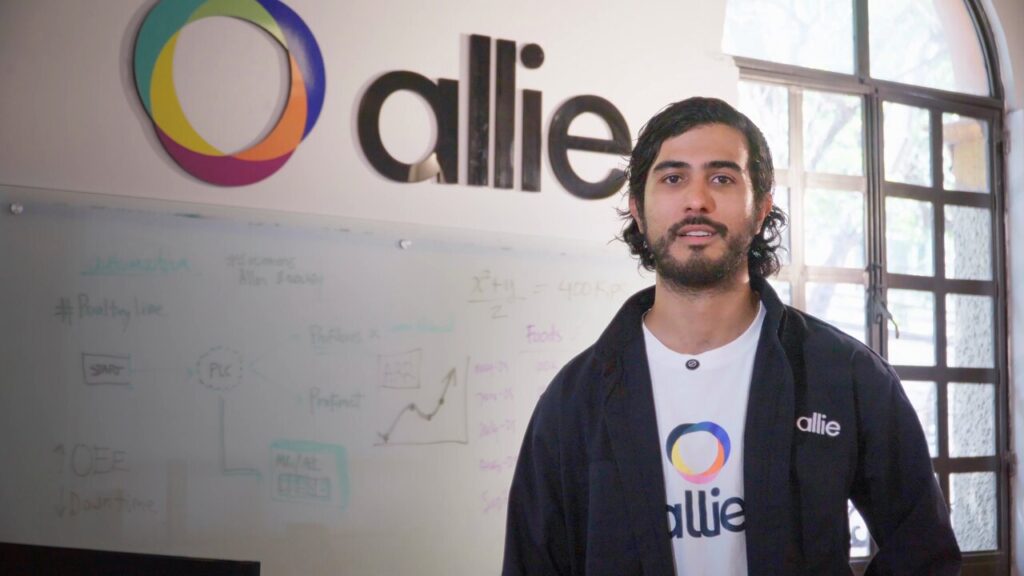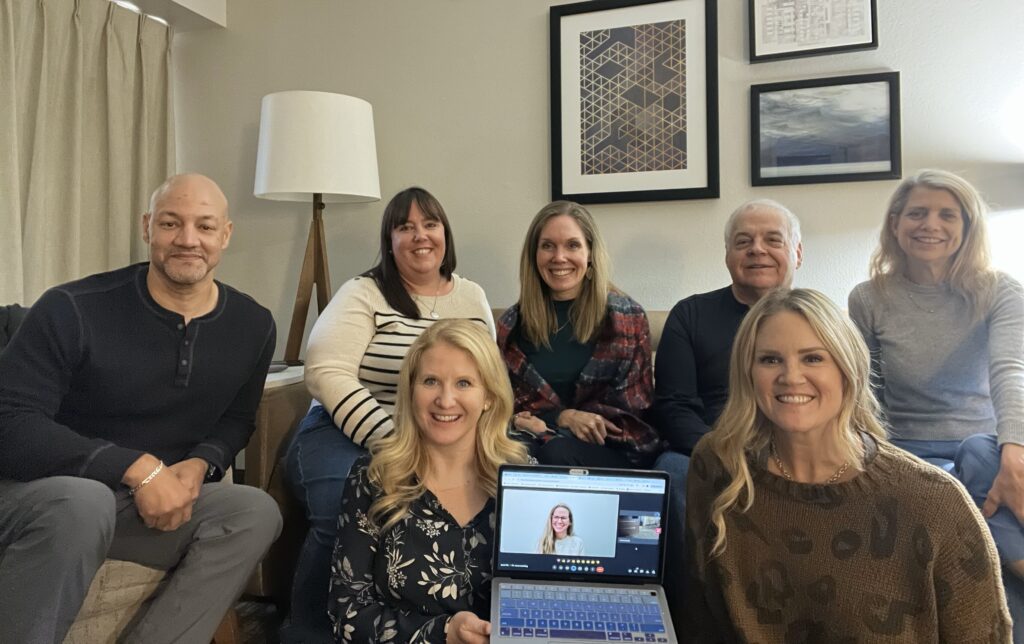
Playmatics is a gaming company that focuses on deeply engaging interactive experiences. The company recently began designing and building the “Shadow Government” mobile social game—a large-scale reality-based concept, and raised $1 million for the project. Playmatics, based in New York City, was founded in 2009.
SUB: Please briefly describe Playmatics—what is the value proposition that you bring to the gaming market?
Wallace: One way Playmatics occupies a unique space in gaming is through our incredibly strong focus on quality design. My co-founder, Nick Fortugno, is an award-winning game designer. He’s been playing and designing games for most of his life and was the original designer behind the first “Diner Dash” game. That game went on to became a mega-hit, played by millions, responsible for generating an entirely new gaming genre, namely “time-management” games.
This strong design focus is most recently recognized in another Playmatics-designed game, which recently won a prestigious CableFAX award. This game is called “The Interrogation” and it is focused around AMC’s popular “Breaking Bad” series. This same game was also nominated for an award at SXSW Interactive. Recognition like this really validates where we are heading.
Right now, we’re also designing and building out the “Shadow Government” mobile social gaming network. It’s a large-scale reality-based social game, which I talk about a little later on in this interview.
As for myself, I’ve been in tech, media and gaming for a while now and have worked in the industry at a high strategic level from a number of vantage points—on the publisher side, at large media companies and as part of several successful start-ups. Being an entrepreneur is just a part of my DNA and this sensibility extends to the rest of the Playmatics company culture. In addition to understanding what it takes to scale a business, build users, optimize monetization streams and also effectively use metrics as the underpinnings of good gaming, I have a pretty good knack of picking up on trends, especially embracing all the possibilities presented by “transmedia” before it was probably even a term. This propensity has allowed Playmatics to really occupy unique space in terms of the opportunities that come our way.
Under Nick’s and my combined leadership, we have assembled an exceptionally strong team of talented game designers, programmers and artists—many of whom have worked together for several years. In an era where all the top design talent is being “acquired” by a myriad of deep-pocketed social gaming companies, Playmatics remains one of the few independent players out there. It feels good.
SUB: What is your business model? How do you (or how do you plan to) make money?
Wallace: Deciding on a business model really depends on a lot of factors. For example, we look at the platform, the genre, the intended audience and overall best practices already established in the space.
For the upcoming Shadow Government game, we are looking at everything from microtransactions, advertising and also revenues from ancillary products.
SUB: Where did the idea behind the company come from? Was there a specific “aha” moment or was it an idea that took a longer time in developing?
Wallace: Playmatics rose out of a desire to keep doing what we have always done—embracing entrepreneurial practices in the context of making deeply engaging gaming and transmedial experiences. More recently, we’ve also stepped up our expertise around “gamification” and applying the principles and practices found in traditional gaming to non-gaming products, services and even real-life experiences.
SUB: When was Playmatics founded, and what were the first steps you took to establishing it?
Wallace: Playmatics was established in 2009. In 2011, Playmatics co-founded another company, called Shadow Government, Inc., along with Philippe Trawnika, to focus specifically on reality-based social gaming.
The first steps to founding a company always involve defining and refining your mission, assembling the right people, focusing and then getting to work.
SUB: How many customers do you currently have?
Wallace: We are always looking for great partners. Fortunately, Playmatics is represented by Creative Artists Agency, the best talent agents around. This means we have access to a wide variety of amazing opportunities and get to meet with some of the smartest people in the entertainment industry.
As for total number of players, it’s impossible to say. Throughout our combined careers, we have certainly touched millions and millions of players.
SUB: How are you marketing your games?
Wallace: Marketing games is really a fine art and the tools we have at-hand these days in terms of targeting and measurement (but not necessarily cost) are better than ever. How one goes about marketing a game really depends on a lot of factors and, like monetization, depends on the title and audience opportunity at-hand. For instance, is the game self-published or is there a publishing partner? What marketing money is available? Is the game being deployed on Facebook, on smartphones or on another gaming platform? All of these questions come into play when marketing and promoting a specific game title or franchise. A realistic and also creative marketing plan is the best way to narrow down all of these possibilities.
These days, the better you can build in virality and social elements into a specific game, the better you are able to market it to players.
SUB: Who do you consider to be your competition?
Wallace: We honestly don’t feel like we have competition. We have a clear vision for where we are heading and are working on great original IP (Shadow Government). There are so many opportunities these days in transmedia and gaming, it’s a moot point to worry about potential competitors. The industry is expanding, not contracting. Maybe we’re in competition with ourselves to be better than we were yesterday.
SUB: How big do you think the opportunity is right now in social gaming?
Wallace: For people willing to take calculated chances, I still believe there are lots of opportunities ahead of us in social gaming. I advise a couple of start-ups. If a start-up came to me to say they are focusing primarily on Facebook—I’d tell them they better have an extremely unique value proposition, killer virality and enough marketing money or strategic partnerships in-place to survive in that competitive environment. There is always opportunity—as long as there is clear vision, excellent execution of that vision and the right relationships in place.
SUB: You recently closed a $1 million investment round—do you have specific plans for the new funding? Do you plan to seek more outside funding in the new future?
Wallace: Shadow Government, Inc. is technically the name of the official entity that raised the money. Shadow Government, Inc. is co-founded by Playmatics (Margaret Wallace & Nick Fortugno) and Philippe Trawnika (formerly of the investment firm Bridgeworks.ch).
So, as part of Shadow Government, Inc. (I love saying that) we raised $1 million in investment from a series of Swiss-based angels. The money is ear-marked to introduce what we consider to be an entirely new form of reality-based social gaming—one which allows us to “gamify” real countries, events and happenings that take place in the real world. The game is also called “Shadow Government” and initially planned as a social mobile title. The game launches later this year.
What makes “Shadow Government” more “reality-based” than perhaps any other? We have a special partnership with The Millennium Institute. For several decades, they have developed and perfected this real-world policy and government modeling software that is astonishingly accurate. It’s a tool for trying out and predicting events around the world. Until now, this model has only been in the hands of government officials and policy-makers. They use these models to consider how a variety of seemingly unrelated decisions may impact the real world, ranging from pollution, education, the environment. Now, for the first time, anyone with a smartphone can ‘play’ at what it’s like to simulate running a real country like the United States. There have been a lot of simulation games out there but none which are really modeling reality to such an astonishing level of accuracy.
Like any social game, Shadow Government will be playable as a standalone but the experience can be deepened through the participation and involvement of friends and others along the social graph. I am absolutely fascinated at the idea of seeing if players of the Shadow Government game can do a better job of managing world events and outcomes t
han actual leaders in the real world.
SUB: Where do you see Playmatics in about a year from now?
Wallace: A year in gaming is like ten years in any other sector. We have a clear sense of purpose and vision for where we’re heading. We believe that the surface of social gaming has only begun to be scratched in terms of what’s possible.
I’d say we’re already entering a third wave of social gaming—one which requires deeper, more compelling gameplay, and which unfolds on mobile and perhaps increasingly off-Facebook. A wise person said to me the other day that “change is not an event, it’s an environment” and that truly encapsulates the complex world we live in. The same holds true for gaming and transmedia.
SUB: Finally, a question I always ask: As an entrepreneur who has navigated the waters of the down economy, what advice do you have for those just now starting a business?
Wallace: This is a great question. Every now and then, I give talks on entrepreneurship and have lots of pointers I’ve collected from my own experiences in terms of kick-starting your company and making it successful.
In an ironic sense, sometimes the best time to start a new company is during a down economy. In a less than stellar economy, you really have to get back to basics and see what unique niche you fill. Sometimes you get to make something entirely new out of nothing. Lead from the heart but arm yourself with a plan, I always say.
Ironically, there are potentially more opportunities to stand out in a down economy than when you are in the midst of a huge bubble. In a bubble, it’s easy to get caught up in other people’s successes and, for inexperienced entrepreneurs, to get distracted and to lose your way.
I also advise start-ups to know when to pivot if something isn’t working. Often this is easier said than done, but necessary for survival. If an entrepreneur determines they must pivot—they might come across enormous resistance from their investors, board members or even their employees. At the end of the day, pivoting might take you to bigger and better things that you never imagined possible.
Finally, I tell young start-ups to listen to feedback but just ignore the naysayers. In a down economy, you will know who your true friends are. So much of business is built on relationships—so in good times and bad, always reach out to and rely on your network of friends and colleagues. At the end of the day, I believe there are more amazing opportunities in this world than there are smart people to pursue them.
Playmatics – www.playmatics.com








